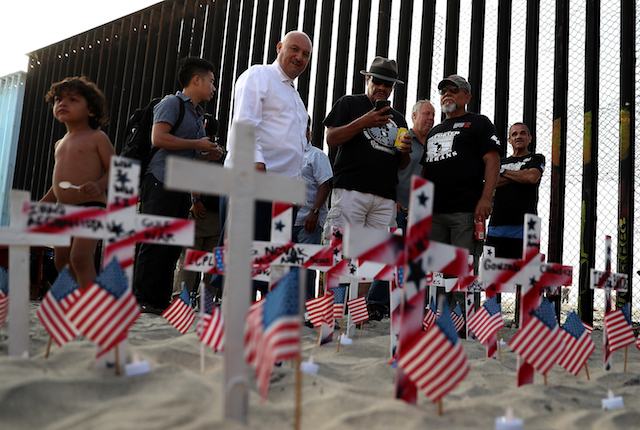United States immigration officials on Friday (March 23) deported a military veteran who served two tours in Afghanistan. The move capped a 16-month plea from immigration rights groups and a U.S. senator to keep him in the country he served.
Immigration and Customs Enforcement (ICE) officials deported Miguel Pérez Jr., 39, who served time for a felony drug conviction, to Mexico from Chicago O’Hare International Airport, according to his lawyer. Pérez was a legal permanent resident since age 11, but he never gained U.S. citizenship.
At a news conference Friday ahead of his deportation, immigration activists released a letter written by Senator Tammy Duckworth (D-Ill.) to Department of Homeland Security (DHS) Secretary Kirstjen Nielsen, according to the Chicago Tribune.
"Beyond the injustice that ICE has laid on Pérez…in his deportation, I would find it shocking to learn that he will potentially be leaving with nothing but the clothes on his back," said Duckworth. "This is a deplorable way to treat a veteran who risked his life in combat for our nation."
Immigrants have long served in the U.S. armed forces, and they currently make up about 3 percent of the 18.8 million U.S. military veterans. Serving in the military has traditionally helped U.S. residents streamline their path to citizenship. Since 2001, more than 100,000 military members have become U.S. citizens, according to U.S. Citizenship and Immigration Services.
But military service does not protect residents from deportation. In the last several years, DHS has deported hundreds of immigrant veterans with criminal records because they did not have citizenship. Pérez Jr. is one of them. In 2010 he was convicted in Cook County, Illinois, of delivering two pounds of cocaine and was sentenced to 15 years in prison. Pérez had served roughly half of his sentence when ICE transferred him to a detention center and began deportation proceedings. According to the Bureau of Justice Statistics, the incarceration rate for all veterans in 2011-2012 (the most recent year available) was 855 per 100,000 veterans.
Last year, Representative Raúl Grijalva (D-Ariz.) introduced a measure that would prevent the deportation of military veterans in some cases. HR 1470 would protect immigrant armed services members from deportation for some low-level crimes if they have served for at least 180 days and received an honorable discharge. The bill has 51 co-sponsors, all Democrats. It was referred to the House Judiciary Committee’s Subcommittee on Immigration and Border Security.
On Friday, Pérez, a father to two U.S. citizen children, was returned to his native Mexico, where he has not lived since he was eight years old. Diagnosed with post traumatic stress syndrome, he unsuccessfully argued that his life would be jeopardized if deported to Mexico, where drug cartels target veterans.
"This case is a tragic example of what can happen when national immigration policies are based more in hate than on logic and ICE doesn’t feel accountable to anyone," Duckworth told press.
